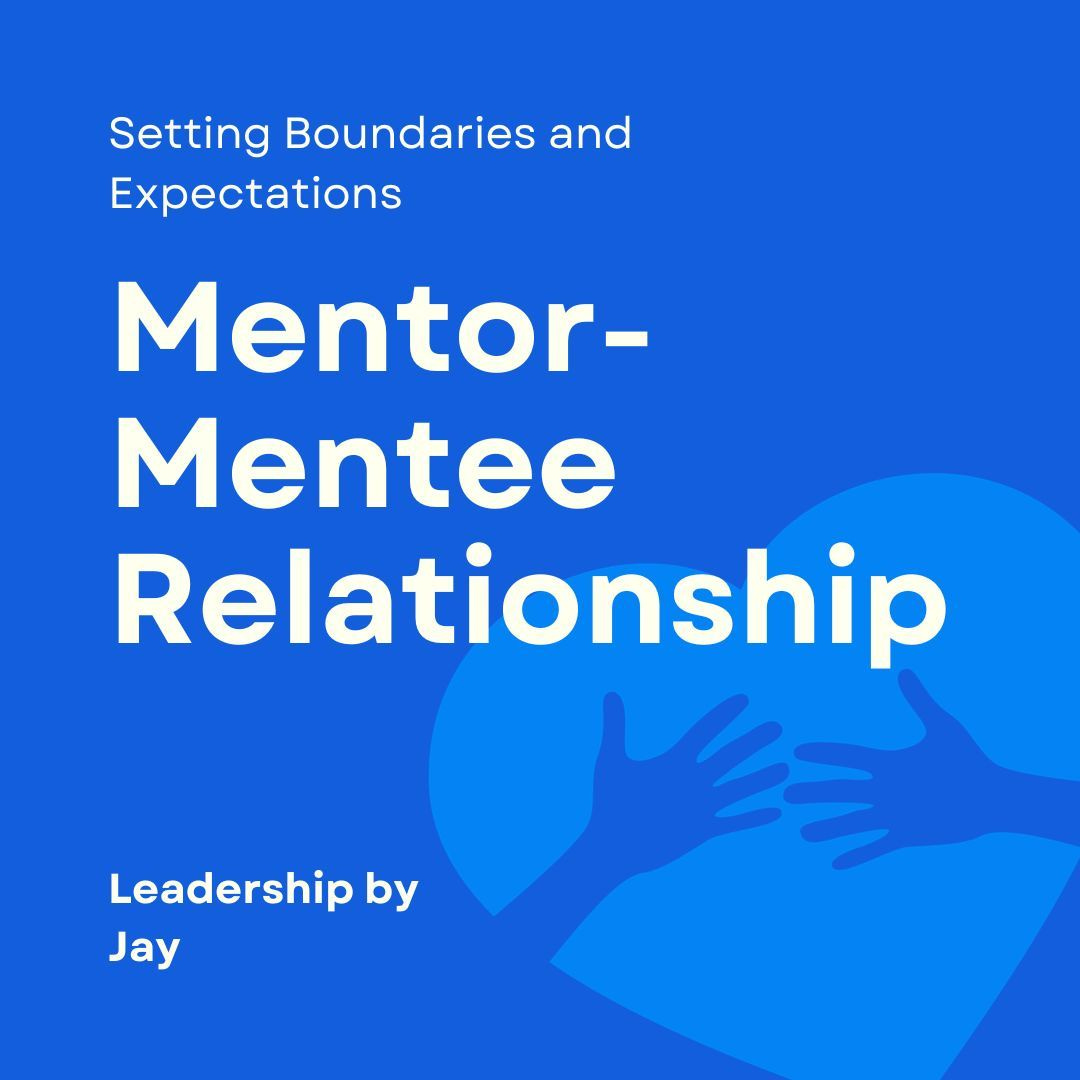The Mentor-Mentee Relationship: Setting Boundaries and Expectations
Are you navigating the complex world of mentorship without a roadmap? Stop leaving your professional growth to chance. Discover how setting the right mentorship expectations can be the difference between career stagnation and skyrocketing success. Don't m
Why? Because mentorship isn't a one-size-fits-all caper. It's a dynamic, two-way street that demands clarity. You wouldn't start a business without a plan, right? Similarly, you shouldn't enter a mentorship without setting boundaries and expectations. This isn't just advice; it's a necessity.
In this guide, we will dissect what you should—and shouldn't—expect from a mentor. We'll also explore how to communicate your expectations and why doing so can make or break your mentorship experience. So, if you're ready to extract the real juice from your mentor-mentee relationship, keep reading. Your future self will thank you.
What to Expect from a Mentor: The Non-Negotiables
Let's cut to the chase. A mentor isn't a fairy godparent who'll wave a magic wand and make your career dreams come true. They're also not your therapist. So, what should you expect?
Guidance, Not Hand-Holding: A mentor provides insights based on their experience. They can help you avoid pitfalls and seize opportunities, but they won't do the work for you. You're the driver; they're the GPS.
Accountability: Expect your mentor to hold you accountable for your goals and actions. If you say you will do something, they'll follow up. It's not nagging; it's ensuring you're on the path to success.
Networking: A mentor can open doors, but they won't shove you through them. They can introduce you to people in their network, but building and maintaining those relationships is up to you.
Honest Feedback: If you're looking for someone to sugarcoat the truth, a mentor isn't for you. Expect candid, constructive feedback that pushes you to grow.
Time: Yes, mentors are busy people, but a good mentor will make time for you. However, respect their time. Be punctual, be prepared, and be concise in your communication.
Now, let's flip the coin.
What shouldn't you expect?
24/7 Availability: Your mentor has their own life and career. Don't expect them to be at your beck and call.
Job Guarantees: A mentor can guide you, but they can't guarantee you a job or promotion. That's on you.
Personal Favors: Keep it professional. Don't expect your mentor to lend you money or help you move apartments over the weekend.
Setting clear expectations from the get-go avoids misunderstandings and sets the stage for a fruitful mentorship. It's like putting the rules of engagement in a strategic game. You need to know the moves you can and can't make.
The Mentor-Mentee Relationship: Setting Boundaries and Expectations
You've got a mentor. Great! But how do you make this relationship work? It's not a one-size-fits-all deal. Here's how to set boundaries and expectations that make the mentorship meaningful for both parties.
Communication Channels: Decide upfront how you'll communicate. Is it email, phone calls, or face-to-face meetings? Knowing the 'how' avoids awkward situations and ensures smoother interactions.
Frequency: How often will you meet? Weekly, monthly, or as-needed? Setting a schedule respects both your time and your mentor's.
Agenda: Don't go into meetings without a plan. Know what you want to discuss. It shows you're serious and make the most of your limited time.
Confidentiality: What's said between you stays between you. This trust is crucial for open, honest conversations.
Exit Strategy: All good things come to an end, including mentorships. Discuss upfront how you'll know when it's time to wrap things up. Is it a specific goal you reach, or is it a time duration?
Let's talk about the elephant in the room—what if things aren't working out? It's okay. Not every mentor-mentee relationship is a match made in heaven. If you find the mentorship isn't providing the value you expected, it's okay to reevaluate. Maybe you need a different mentor, or perhaps you're not ready for a mentor yet. Either way, it's better to acknowledge it and make a change than to let it drag on.
Setting boundaries and expectations isn't a bureaucratic red tape. It's the foundation of a successful mentorship. Think of it as the rules in a playbook. You wouldn't play a game without knowing the rules, right? The same goes for mentorship. Know the rules, play the game, win the career.
How to Communicate Your Expectations
So, you've got a mentor, and you've got goals. Great. But have you communicated those goals? If you're nodding your head, thinking, "Well, they should know," you're missing the point. Here's how to communicate your expectations without leaving room for guesswork.
Keep reading with a 7-day free trial
Subscribe to Leadership with Jay to keep reading this post and get 7 days of free access to the full post archives.



